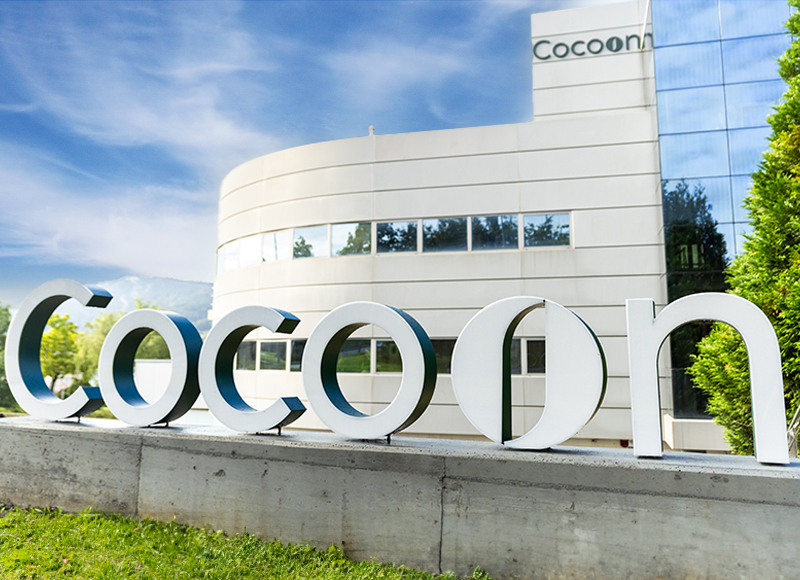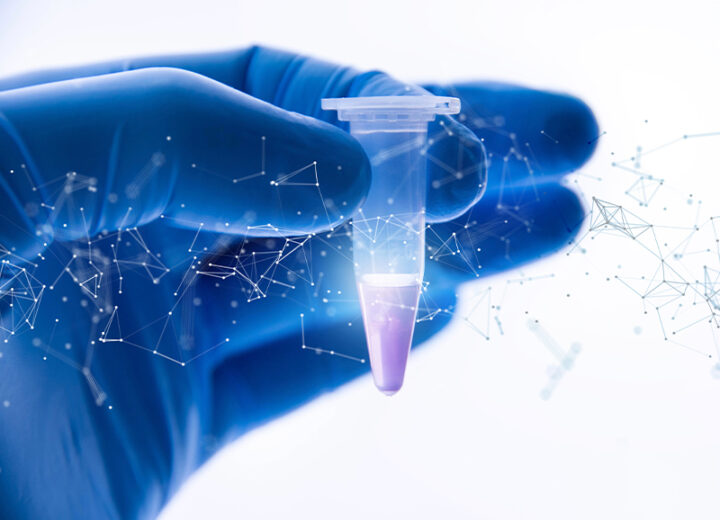27 September 2024
Cocoon opens first industrial recombinant protein plant using living bioreactors

- This is the first industrial-scale plant in the world that produces recombinant proteins using insects in their chrysalis stage as low-cost natural bioreactors.
- It represents an efficient and economically viable alternative to supplying reagents for the emerging mRNA therapies and vaccines industry, gene sequencing, and cultivated meat.
- The new plant marks a milestone for society, as scaling up production will allow for greater output and further reduce the cost of these recombinant proteins, which are essential for making advanced therapies and sustainable food supplies accessible.
DERIO, SPAIN September 27th, 2024. The biotechnology company, Cocoon Bioscience, has inaugurated the world’s first industrial production plant for recombinant proteins that uses insects in their chrysalis stage as low-cost natural bioreactors. Located at the Bizkaia Technology Park in Derio, this launch marks a historical milestone. It represents a new phase of growth for Cocoon, enabling the company to produce recombinant enzymes and growth factors on an industrial scale.
Founded in September 2022, the core of the company is its unique CrisBio® platform: a novel expression system for proteins that has been perfected through nearly two decades of research and development.
This innovative alternative that combines science and nature has proven to be more efficient than traditional bioreactors. For example, fermentation methods using bacteria rely on stainless-steel bioreactors which are expensive and use a lot of energy. In comparison, natural bioreactors are energy-efficient, easily scalable, and low-cost.
CrisBio® has also effectively produced a wide range of complex proteins that microbial fermentation methods struggle with. This represents a significant advance for two emerging industries, providing economically viable reagents for mRNA therapies and vaccines, gene sequencing, and cultivated meat production.
For healthcare, Cocoon aims to democratize access to this type of therapy. By reducing the cost of raw materials by up to 90%, the company enables better access for developing countries facing population-wide diseases and patients who need innovative treatments worldwide.
For cultivated meat, this represents a sustainable alternative for the future of global food supply. Not only is it estimated that there will be 9 billion people on the planet by 2075, making traditional food production unsustainable, but current livestock production significantly contributes to global warming.
This new facility brings production to an industrial scale, increasing the supply and reducing the costs associated with these essential proteins, leading to great access to advanced therapies and more sustainable food options.
Cocoon’s CEO, Josh Robinson, explained:
“The CrisBio® technology, now supported by this new facility, allows us to produce these recombinant proteins faster, more naturally, and on a more accessible scale. This represents a tremendous advancement for the biopharmaceutical and food industries.”
Additionally, Romy M. Dalton, COO of Cocoon, noted:
“After years of research and work, seeing that we have been able to scale this up signifies a major achievement for our production, and therefore for society, is very exciting and motivates us even more to continue growing.”
The inaugural event was attended by dozens of institutional and business representatives from the Basque Country. This event is a milestone for society on a global scale and also reinforces Euskadi’s position as a global biotechnology hub.
About Cocoon:
Cocoon Bioscience is a biotechnology company based in Bizkaia that specializes in the production of recombinant proteins such as high-performance growth factors and enzymes.
Its unique technology, CrisBio®, is an automated platform that uses insects in their pupal state as high-efficiency natural bioreactors. This method is more natural, scalable, and accessible compared to the traditional fermentation method using conventional stainless-steel bioreactors.
A natural, efficient, and accessible alternative
The CrisBio® technology is based on inoculating the pupae with baculovirus, which acts like a Trojan horse, introducing the desired genetic sequence into the insect’s cells. The baculovirus is harmless to mammals and enables the pupa to naturally produce the desired recombinant protein in just three to six days.
To produce the recombinant proteins that are crucial for addressing current societal challenges, Cocoon uses pupae of Trichoplusia ni. The company’s insect breeding facility, managed by a team of expert entomologists, is designed to be an efficient and robust production platform.


